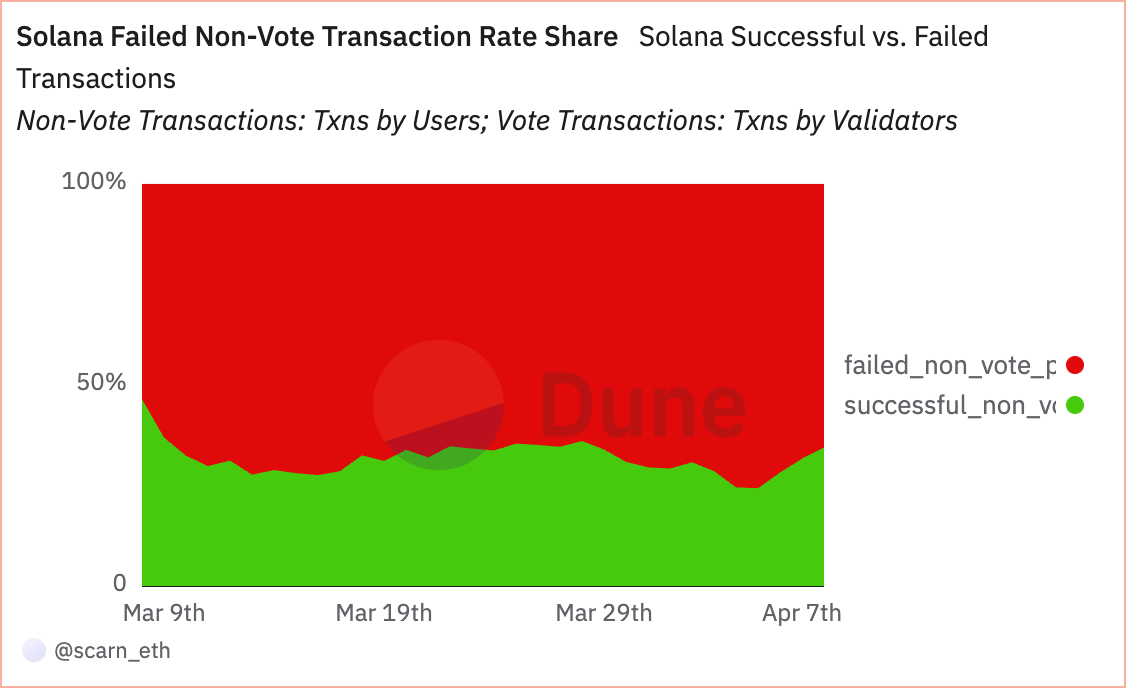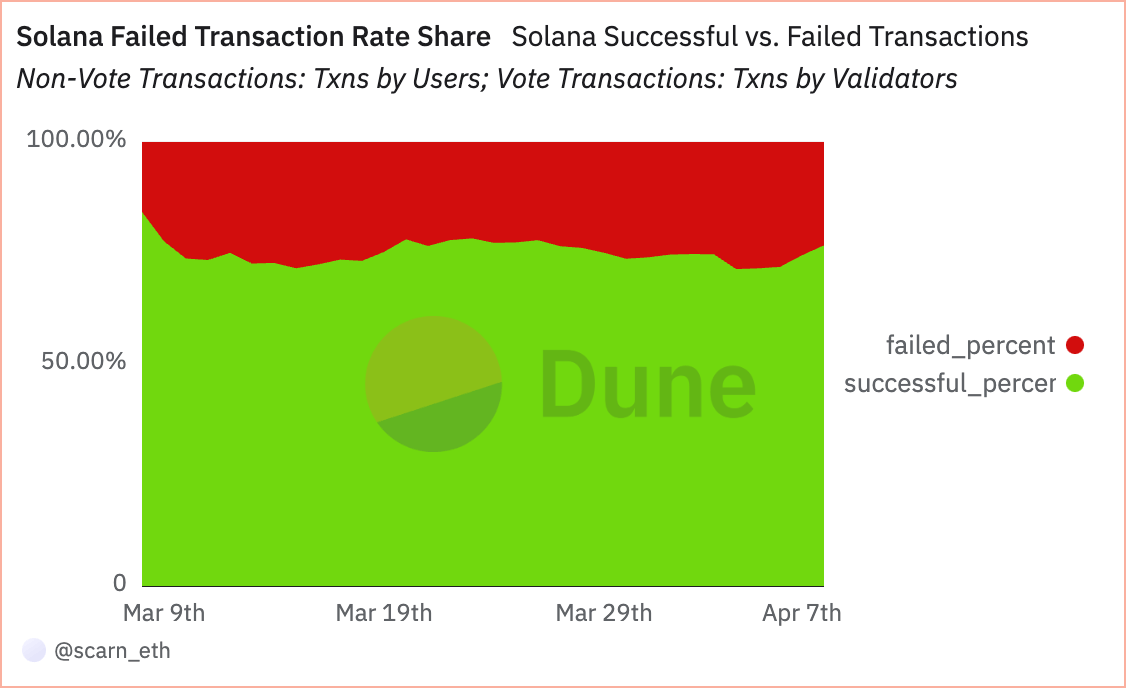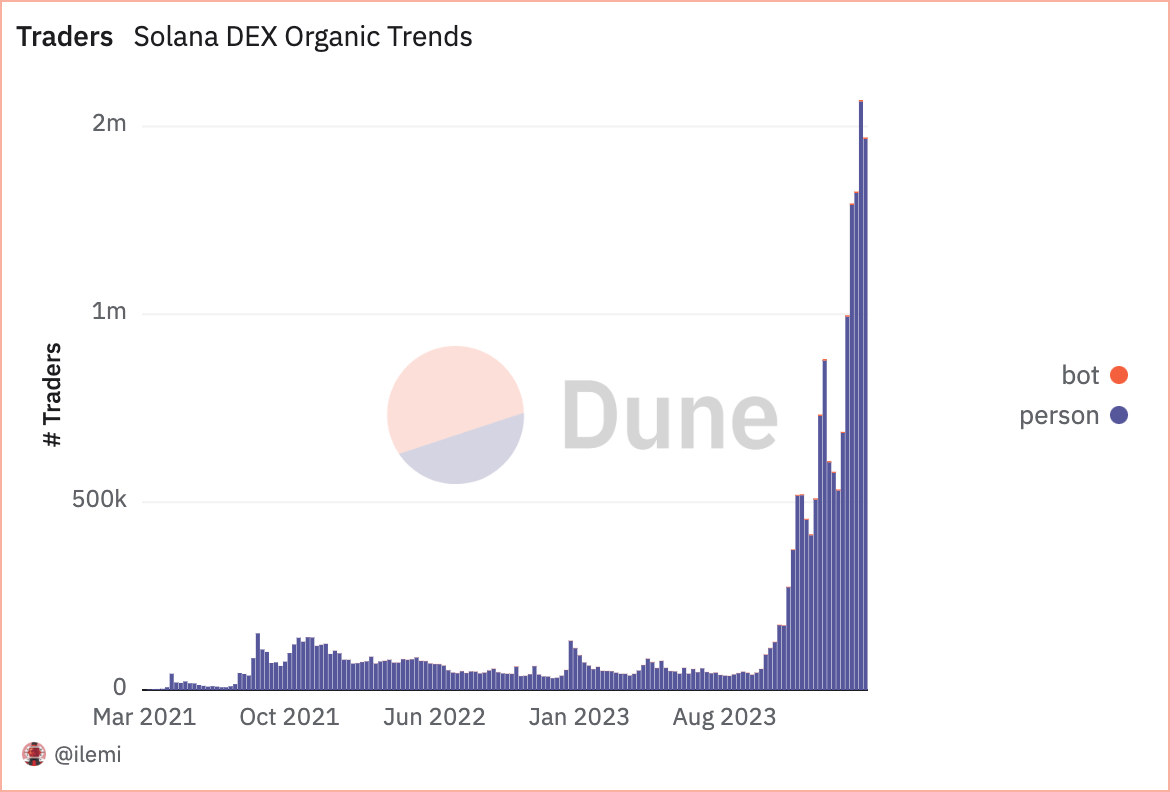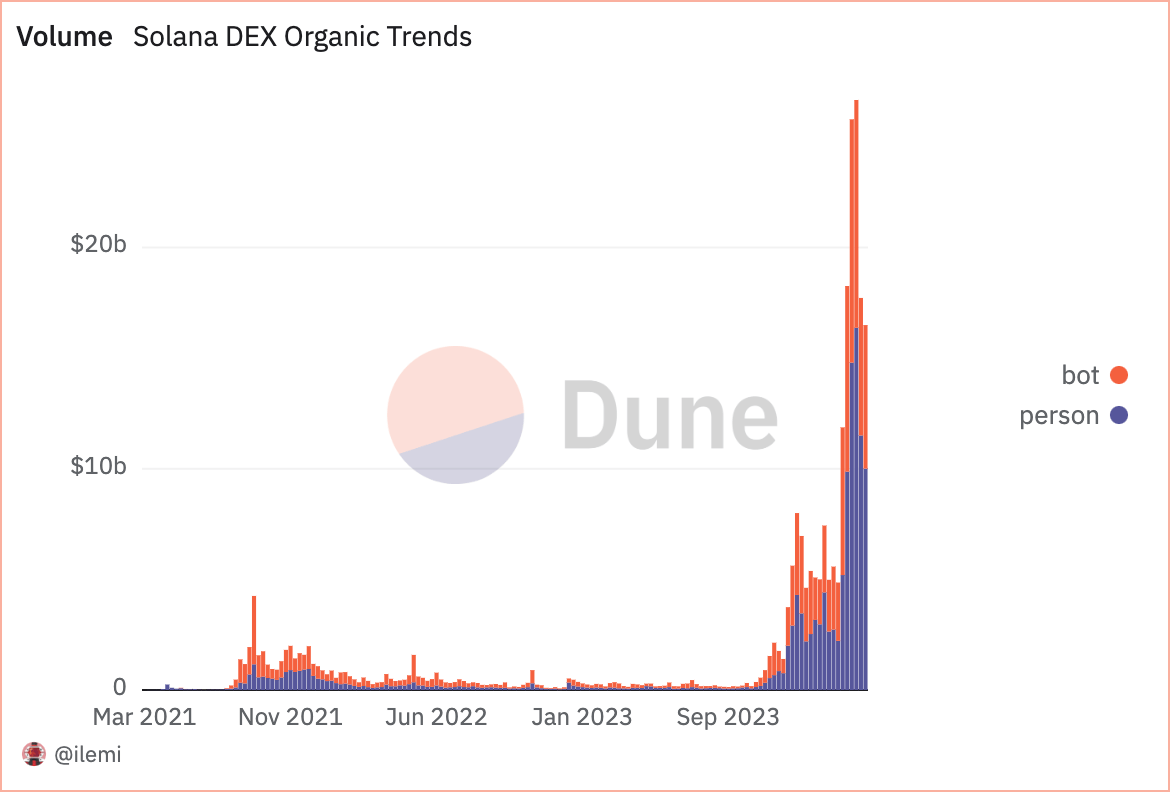Solana has not too long ago encountered a major problem with an unprecedented variety of transaction failures. On April fifth, the community noticed greater than 75% of transactions fail, indicating a vital subject for the community, which has rapidly turn out to be a key participant within the DeFi area and dealt with large transaction volumes. This improve in failed transactions has raised issues concerning the community’s capability to maintain its development and preserve operational effectivity.
Transactions on Solana are divided into two sorts: transactions with voting and transactions with out voting. Voting transactions are associated to a consensus mechanism, basically validators voting on the state of the blockchain. Non-voting transactions embrace all different sorts, together with transfers, good contract execution, and DEX trades. The sharp improve in failed non-voting transactions with a fee of as much as 75.68% signifies extreme limitations in processing user-initiated actions.

Conversely, the low failure fee of voting transactions, which has additionally elevated considerably however nonetheless stays beneath 0.11%, signifies that the consensus mechanism itself stays steady regardless of the stress on the community.


Trying on the proportion of voting versus non-voting transactions reveals vital shifts in community exercise. Though a good portion of the community’s transactions are for voting functions, the numerous proportion of non-voting transactions reveals that the majority of Solana’s use instances transcend consensus duties.
Nevertheless, the general transaction failure fee reached an all-time excessive of 28.50% on April fifth, though it’s decrease than the non-voting transaction failure fee, it nonetheless reveals a worrying pattern that would undermine consumer confidence and community utility.
A number of various factors contributed to the excessive failure fee within the community. Nevertheless, the proliferation of bots within the community appears to be dominant. Bots are automated packages designed to execute transactions at excessive speeds and have been thought of a major burden on Solana’s infrastructure for a while. Regardless of bots representing a small fraction of internet customers, they characterize a disproportionately massive quantity of enterprise exercise.

On March 18th, Solana recorded its largest ever DEX commerce quantity of $26.7 billion, $10.3 billion of which got here from bot exercise. This discrepancy highlights the influence of bots on community congestion and the ensuing transaction failures.

Solana may face critical penalties from such a excessive failure fee. These failures translate into misplaced alternatives and potential monetary losses for customers, particularly in DeFi. On the community facet, persistent transaction reliability points may discourage builders and customers from constructing or utilizing Solana in favor of extra steady alternate options.
Nevertheless, fixing these challenges is the toughest half. Enhancing the community infrastructure to effectively handle massive volumes of transactions is paramount, however implementing it on the velocity and scale required by this downside will proceed to be extraordinarily troublesome. Whereas this might embrace processes comparable to updating consensus mechanisms and optimizing transaction processing, the precedence must be to implement higher measures to manage bot exercise.
Whereas the community faces vital points with transaction failures, notably on account of non-voting transactions and bot exercise, on-chain information reveals that its underlying stability stays comparatively intact.
The publish Solano’s Rising Pains: Why 75% of No-Vote Transactions Fail appeared first on fromcrypto.
